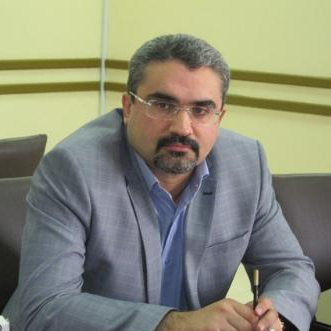مقایسه اثربخشی آموزش هوش هیجانی و خودشفقتورزی بر سرزندگی تحصیلی و بهزیستی ذهنی دانش آموزان دوره دوم متوسطه شهر همدان
کلمات کلیدی:
هوش هیجانی, خودشفقتورزی, سرزندگی تحصیلی, بهزیستی ذهنی, دانش آموزانچکیده
هدف: هدف از این پژوهش مقایسه اثربخشی آموزش هوش هیجانی و خود شفقت ورزی بر بهزیستی ذهنی و سرزندگی تحصیلی دانش آموزان دوره دوم متوسطه دخترانه شهر همدان بود.
روش پژوهش: روش پژوهش حاضر از نوع نیمهآزمایشی سه گروهی (دو گروه آزمایش و یک گروه کنترل) به همراه پیشآزمون و پسآزمون بود جامعه شامل دانش آموزان دوره دوم متوسطه دخترانه شهر همدان در سال تحصیلی (1403-1402) بودند ، نمونه در این مرحله برای نمونهگیری از روش نمونهگیری چندمرحله ای خوشه ای استفاده شده است و به صورت تصادفی 60 نفر از این افراد (20 نفر گروه آزمایش اول، 20 نفر گروه آزمایشی دوم و 20 نفر گروه کنترل) انتخاب شد. ابزار اندازهگیری متغیرهای تحقیق به ترتیب از پرسشنامه مقیاس بهزیستی ذهنی کییز و ماگیارمودر (٢٠٠٣) و پرسشنامه سرزندگي تحصیلي مارتین و مارش (2008) استفاده شد. برای آزمون فرضیه های پژوهش ، از آزمون مانکوا و پیش فرض های آن استفاده شد. آزمون ANOVA (تحلیل واریانس یک طرفه) همراه با نمودار جعبه ای و آزمون تعقیبی توکی و شفه و.. برای مقایسه های چند تایی در پس آزمون از نرمافزار SPSS نسخه 23 استتفاده شده است.
یافتهها: نتایج این تحقیق نشان داد آموزش هوش هیجانی و خودشفقت ورزی بر بهزیستی ذهنی و سرزندگی تحصیلی دانش آموزان دور دوم متوسطه دخترانه شهر همدان اثربخش است. به طوری که نمره دانش آموزانی که آموزش های لازم را در ارتباط با هوش هیجانی و خودشفقت ورزی دریافت کرده بودند نسبت به دانش آموزانی که هیچ آموزشی در این راستا دریافت نکرده بودند، بیشتر بود. همچنین مشخص شد بین اثربخشی آموزش هوش هیجانی و خودشفقت ورزی بر بهزیستی ذهنی و سرزندگی تحصیلی دانش آموزان دختر تفاوت معناداری ندارد.
نتیجهگیری: روانشناسان میتوانند به دانشآموزان کمک کنند تا آگاهی بیشتری از احساسات خود پیدا کنند و یاد بگیرند چگونه با آنها برخورد کنند. تا اهداف معنادار و قابل تحققی برای خود تعیین کنند. اهداف واقعگرایانه و مرتبط با علاقههای شخصی، میتوانند انگیزه و سرزندگی تحصیلی را افزایش دهند. آموزش خودشفقت میتواند به دانشآموزان کمک کند تا انگیزه داخلی خود را تقویت کنند. همچنین لازم است به آن ها آموزش داده شود که از داشتن معنا و ارتباط عمیق با موضوعات تحصیلی لذت ببرنند و از راهبردهایی مانند تجزیه و تحلیل مسائل، اتصال به زندگی روزمره و ایجاد ارتباط با محتوا استفاده کنند.
دانلودها
مراجع
Abedini Valamdehi, R., & Ravanbakhsh, F. (2021). Predicting psychological well-being based on emotional intelligence and life satisfaction among primary school teachers in Zaveh district. Professional Teacher Development, 6(2), 21-35. (In Persian)
Afshari Nia, K., Soozani, Z., Hosseini, S. S., & Amiri, H. (2019). Effectiveness of emotional intelligence and spiritual intelligence training on enhancing psychological well-being and self-control of female students in Hamadan. Educational Psychology Journal, Islamic Azad University, Tonekabon Branch, 9(2), 113-127. (In Persian)
Anglim, J., Horwood, S., Smillie, L. D., Marrero, R. J., & Wood, J. K. (2020). Predicting psychological and subjective well-being from personality: A meta-analysis. Psychological bulletin, 146(4), 279.
Bar-On, R. (2010). Emotional intelligence: An integral part of positive psychology. South African Journal of Psychology, 40(1), 54-62.
Behrouzi, N., Mohammadi, F., & Omidian, M. (2018). Comparison of social support, metacognitive beliefs, mental health, and vitality in normal and delinquent male adolescents in the reformation and training center of Ahvaz city. Strategic Research in Security and Social Order, 7(20), 81-96. (In Persian)
Buecker, S., Simacek, T., Ingwersen, B., Terwiel, S., & Simonsmeier, B. A. (2021). Physical activity and subjective well-being in healthy individuals: a meta-analytic review. Health Psychology Review, 15(4), 574-592.
Das, K. V., Jones-Harrell, C., Fan, Y., Ramaswami, A., Orlove, B., & Botchwey, N. (2020). Understanding subjective well-being: perspectives from psychology and public health. Public Health Reviews, 41(1), 1-32.
Franz, R., Gerda, H., Josef, K., & Alexander, S. (2020). On the Impact of Learning Cycle Teaching on Austrian High School Students’ Emotions, Academic Self-Concept, Engagement, and Achievement. Journal of Research in Science Education, 50(6). https://doi.org/10.1007/s11165-020-09918-w
Gilbert, P. (2017). Exploring Compassion Focused Therapy in forensic settings: An evolutionary and social-contextual approach. In Individual Psychological Therapies in Forensic Setting. 73-98.
Halimi, F., AlShammari, I., & Navarro, C. (2021). Emotional intelligence and academic achievement in higher education. Journal of Applied Research in Higher Education, 13(2), 485-503.
Jebb, A. T., Morrison, M., Tay, L., & Diener, E. (2020). Subjective well-being around the world: Trends and predictors across the life span. Psychological science, 31(3), 293-305.
Keyes, C. L., & Magyar-Moe, J. L. (2003). The measurement and utility of adult subjective well-being.
Khodapana, F., & Tamannaeifar, M. R. (2022). The mediating role of happiness and academic self-efficacy in the relationship between self-compassion and academic well-being in student. Journal of Psychological Science, 21(118), 2067-2089.
Lee, K. J., & Lee, S. M. (2022). The role of self-compassion in the academic stress model. Current Psychology, 41(5), 3195-3204.
Lei, W., Wang, X., Dai, D. Y., Guo, X., Xiang, S., & Hu, W. (2022). Academic self‐efficacy and academic performance among high school students: A moderated mediation model of academic buoyancy and social support. Psychology in the Schools, 59(5), 885-899.
MacCann, C., Jiang, Y., Brown, L. E., Double, K. S., Bucich, M., & Minbashian, A. (2020). Emotional intelligence predicts academic performance: A meta-analysis. Psychological bulletin, 146(2), 150.
Martin, A. J., & Marsh, H. W. (2008). Academic buoyancy: Towards an understanding of students' everyday academic resilience. Journal of school psychology, 46(1), 53-83.
Martin, A. J., & Marsh, H. W. (2020). Investigating the reciprocal relations between academic buoyancy and academic adversity: Evidence for the protective role of academic buoyancy in reducing academic adversity over time. International Journal of Behavioral Development, 44(4), 301-312.
Monemian, G., Mardani Rad, M., Ghanbari Panah, A., & Omidian, A. (2021). Comparison of the effectiveness of cognitive-existential therapy and group-based compassion-focused therapy on the psychological well-being of divorced women heading households. Journal of Psychological Sciences, 20(99), 439-451. (In Persian)
Mosabeygi, T. (2021). Forecast of Academic Vitality Based on Family Emotional Atmosphere, Flourishing, and Self-Compassion in Students of Kermanshah University of Medical Sciences in 2019-2020. Journal of Medical Education Development, 14(43), 77-85.
Muris, P., & Otgaar, H. (2023). Self-Esteem and Self-Compassion: A Narrative Review and Meta-Analysis on Their Links to Psychological Problems and Well-Being. Psychology Research and Behavior Management, 2961-2975.
Parsakia, K. (2023). The Effect of Chatbots and AI on The Self-Efficacy, Self-Esteem, Problem-Solving and Critical Thinking of Students. Health Nexus, 1(1), 71-76.
Parsakia, K., Rostami, M., & Saadati, S. M. (2023). The Relationship between Emotional Intelligence and Marital Conflicts Using Actor-Partner Interdependence Model. Journal of Psychosociological Research in Family and Culture, 1(1), 23-28.
Pleeging, E., Burger, M., & van Exel, J. (2021). The relations between hope and subjective well-being: A literature overview and empirical analysis. Applied Research in Quality of Life, 16, 1019-1041.
Poots, A., & Cassidy, T. (2020). Academic expectation, self-compassion, psychological capital, social support and student wellbeing. International Journal of Educational Research, 99, 101506.
Putwain, D. W., Gallard, D., & Beaumont, J. (2020). Academic buoyancy protects achievement against minor academic adversities. Learning and Individual Differences, 83, 101936.
Putwain, D. W., Wood, P., & Pekrun, R. (2022). Achievement emotions and academic achievement: Reciprocal relations and the moderating influence of academic buoyancy. Journal of Educational Psychology, 114(1), 108.
Sánchez-Álvarez, N., Berrios Martos, M. P., & Extremera, N. (2020). A meta-analysis of the relationship between emotional intelligence and academic performance in secondary education: A multi-stream comparison. Frontiers in psychology, 11, 1517.
Soleymanpour Magham, H., & Saiedi, A., & Mahdian, H. (2022). Comparing the effectiveness of compassion and acceptance and commitment training on psychological well-being. Applied Family Therapy, 3(4), 464-478. (In Persian)
Tan, J. J., Kraus, M. W., Carpenter, N. C., & Adler, N. E. (2020). The association between objective and subjective socioeconomic status and subjective well-being: A meta-analytic review. Psychological Bulletin, 146(11), 970.
Ullah, M. S., Akhter, S., Aziz, M. A., & Islam, M. (2023). Social support: mediating the emotional intelligence-academic stress link. Frontiers in Psychology, 14.
Varaei, P., Momeni, K., & Moradi, A. (2017). Predicting psychological well-being based on religiosity and self-compassion among the elderly. Psychology of Aging, 3(1), 45-54. (In Persian)
Xu, X., & Wang, B. (2022). EFL students’ academic buoyancy: Does academic motivation and interest matter?. Frontiers in Psychology, 13, 858054.
Zhou, L., Sukpasjaroen, K., Wu, Y., Gao, L., Chankoson, T., & Cai, E. (2022). Perceived social support promotes nursing students’ psychological wellbeing: explained with self-compassion and professional self-concept. Frontiers in Psychology, 13, 835134.



























